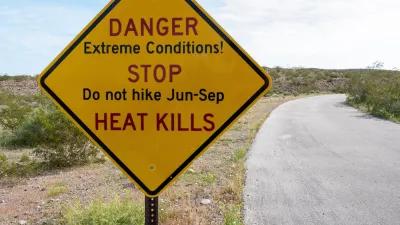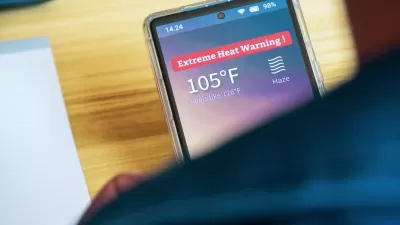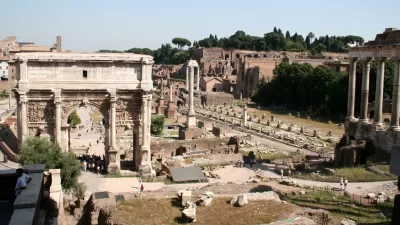The guide contains actionable steps local and state governments can take to protect vulnerable residents from the impacts of extreme heat.

As policymakers at all levels of government are beginning to recognize the significant threat posed by extreme heat, particularly to vulnerable populations such as children and the elderly., the U.S. Department of Housing and Urban Development (HUD) issued an Extreme Heat Playbook designed to help cities understand the public health risks of extreme heat and provide best practices for building resilience and mitigating the impacts.
According to a press release from HUD, “The Extreme Heat ‘Playbook’ is an actionable guide for planning and implementing measures, emphasizing evaluating existing community strengths, weaknesses, and capabilities; updating policies and protocols to address current and future conditions; lowering cooling costs; and highlighting the critical importance of resilience amid climate change, given the increase of severe extreme heat events.”
The guide identifies 16 strategies, complete with examples and a list of federal funding sources and resources. “Built upon four clear action tracks, the playbook includes multiple strategies within each section and provides project profiles that illustrate how other communities have addressed the impacts of extreme heat.”
The press release adds, “The ‘Playbook’ aligns with the National Heat Strategy introduced by the Biden-Harris Administration to coordinate a ‘whole-of-government’ approach to extreme heat from 2024 through 2030, as well as the newly-launched Extreme Heat Call to Action and the White House Climate Resilience Framework.”
FULL STORY: HUD Commits to Protect Households Across the Nation from Extreme Heat

Planetizen Federal Action Tracker
A weekly monitor of how Trump’s orders and actions are impacting planners and planning in America.

Maui's Vacation Rental Debate Turns Ugly
Verbal attacks, misinformation campaigns and fistfights plague a high-stakes debate to convert thousands of vacation rentals into long-term housing.

Restaurant Patios Were a Pandemic Win — Why Were They so Hard to Keep?
Social distancing requirements and changes in travel patterns prompted cities to pilot new uses for street and sidewalk space. Then it got complicated.

In California Battle of Housing vs. Environment, Housing Just Won
A new state law significantly limits the power of CEQA, an environmental review law that served as a powerful tool for blocking new development.

Boulder Eliminates Parking Minimums Citywide
Officials estimate the cost of building a single underground parking space at up to $100,000.

Orange County, Florida Adopts Largest US “Sprawl Repair” Code
The ‘Orange Code’ seeks to rectify decades of sprawl-inducing, car-oriented development.
Urban Design for Planners 1: Software Tools
This six-course series explores essential urban design concepts using open source software and equips planners with the tools they need to participate fully in the urban design process.
Planning for Universal Design
Learn the tools for implementing Universal Design in planning regulations.
Heyer Gruel & Associates PA
JM Goldson LLC
Custer County Colorado
City of Camden Redevelopment Agency
City of Astoria
Transportation Research & Education Center (TREC) at Portland State University
Jefferson Parish Government
Camden Redevelopment Agency
City of Claremont





























